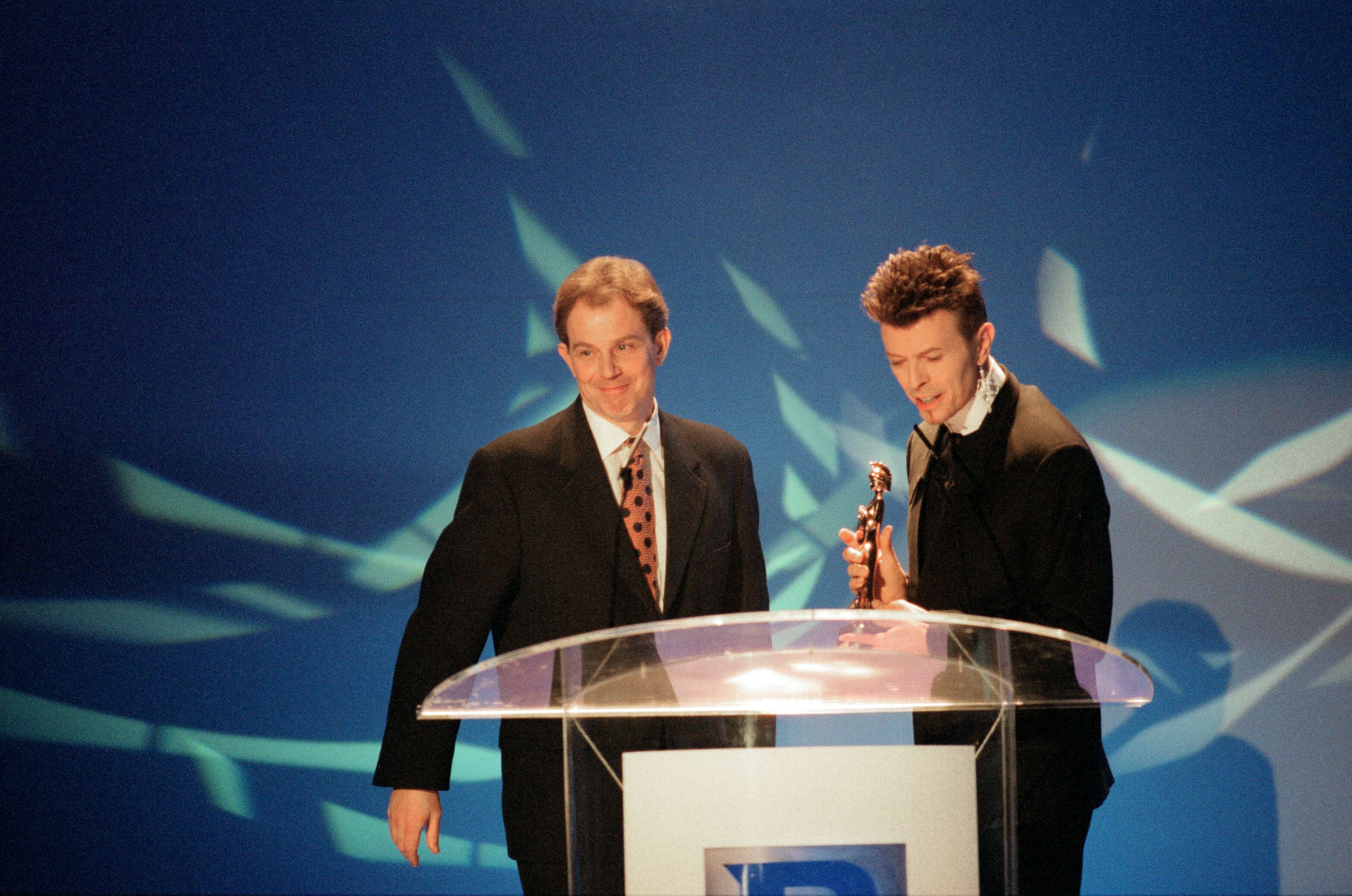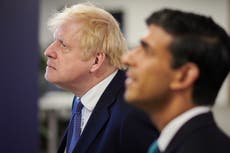Culture is used for political agendas – where is the support in return?
From Hancock’s public adoration of grime to Corbyn’s plea to metal-heads, and Blair’s Brit-pop rendezvous, politics has forever traded off Britain’s creative splendour


The debate rages on about exactly what Rishi Sunak did or didn’t say about support for British creatives. Yes, he didn’t specifically say people in the arts and music sectors should retrain and find new jobs – ITV retracted a statement and said the chancellor of the exchequer spoke in generality, and that “many" would have to “adapt”. And yet little support for said sectors has been forthcoming. It seems fitting to paraphrase that great philosopher of our times, Ronan Keating; “you say it best Rishi, when you say nothing at all …”
You used to know where you were with British politicians. The ones on the left were dour and smoked pipes. The ones on the right hated working-class people. Then, in 1997, Tony Blair came along and drove his campaign bus right down the middle. Suddenly you’ve got rockstars hanging out at Downing Street – as Oasis, then the UK’s biggest band, infamously did that same year – and the prime minister, electric guitar in tow, mugging for images more suited to VH1’s Behind The Music than anything we’d seen from a political leader before.
The small matter of an illegal war aside, Tony Blair’s Labour government achieved many great things during their time in office. It’s difficult now, after years of Tory austerity, to look back at just how vibrant and progressive the country felt for a time. Pop music was core to this. When Blair appeared at the 1996 Brit Awards, in person, he did so do to present the great David Bowie with the award for Outstanding Contribution to British Music. “Every so often,” he said at the time, “I feel I should graduate to classical music. But the truth is, I'm more likely to listen to rock music …” And yet, while little of Blair’s country remains, British politics continues to understand the power of pop culture that he – and perhaps more crucially, sultan of spin Alastair Campbell – fused into its DNA.
This wasn’t always the case. Thirty-years ago, at the 1990 Brit Awards, Margret Thatcher revealed via pre-recorded video message that her favourite song was (How Much Is) That Doggie In the Window?, a novelty hit for Scouse chanteuse Lita Roza in 1953. It was a thing. Fine Young Cannibals returned their awards in protest – because of Tory policy, not the PM’s music taste. And yet, while the Iron Lady’s answer was almost certainly an honest one, it did little to suggest she was on the same wavelength as those she needed votes from.
Post-Blair, UK politicians rarely forget to check the pulse of the nation. Consider Thatcher’s spawn, secretary of state for health and social care, Matt Hancock, eulogising his love of grime in The Times a few years back. Maybe he’s being honest. It’s hard to tell with that lot.
Briefly and naively infatuated with Jeremy Corbyn, I decided in the summer of 2017 to see if he would consider appearing on the cover of the rock music magazine I then edited, Kerrang!, on the eve of that year’s general election. I thought it would be hard work. It was a doddle. The then Labour leader turned up for an interview and photoshoot a few days after my initial phone call. He asked me, “when you say rock music, what do you mean exactly?” The smart, hip young people who surrounded him winced. Jeremy had as much interest in rock music as I do in ambient Ethiopian jazz. But he was smart enough to want a bit of Kerrang!’s market-leading sales figures, as well as access to the minds of the magazine’s youthful demographic.
Britain loves trading off its creative splendour. Industry and tourism has long utilized memories of the swinging sixties, seventies punk, eighties pop, and, of course, Britpop. In the old world, Heathrow Airport was plastered with advertisements for British Airways, chronicling the greats – The Rolling Stones, The Beatles, The Who – who had flown out from said airport to conquer the world. And yet, when iconic central London music venue The 12 Bar – located on Denmark Street, for years London’s rock ‘n’ roll hub – was shuttered in 2015 as part of the Crossrail development that had already taken The Astoria and has since The Borderline, there was no government opposition. Ditto to the ever-rising rents that have pushed out the poorly paid artists who create the culture on which they trade.
When David Cameron announced in 2010 that he was a fan of The Smiths, only for guitarist Johnny Marr to subsequently tweet “I forbid you to," I thought it was quite cruel. I’ve hardened. We’re talking about the demise of a £5 billion-pound industry, one worth even more when judged in terms of well-being and enrichment. Once again, in the words of that great philosopher of our times, Ronan Keating; “If you love me Rishi … don’t just say it, do something …”
Join our commenting forum
Join thought-provoking conversations, follow other Independent readers and see their replies
Comments


Bookmark popover
Removed from bookmarks